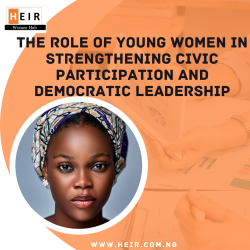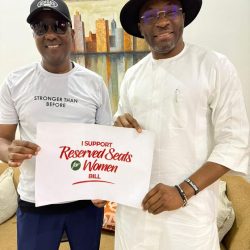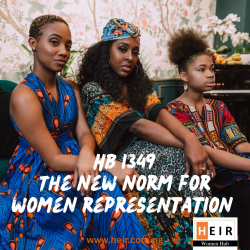2025 in Brief – Impact, Collaboration and Footprints.
The team at HEIR Women Hub envisioned the year 2025 as Visibility Year. This enabled the capacity of each member to think beyond our Strategic Plan and double up on how we implement our projects. While making palpable impacts is at the core of our mission, positioning what we develop and build is vital for[…]










